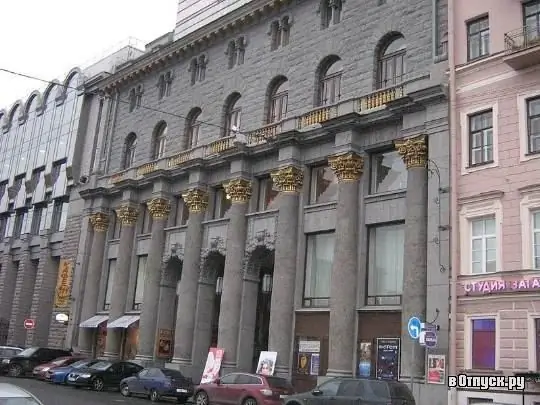
Description of the attraction
The Cinema Museum in St. Petersburg was founded in the fall of 2001. The building in which the museum is located was built in 1914-1916 according to the idea of graduates of the Academy of Arts, architects B. Ya. Botkin and K. S. Bobrovsky. They designed the building in the style of an Italian palazzo of late 16th century Palladian architecture. Once upon a time there was one of the first St. Petersburg cinemas "Splendid Palace".
The idea of establishing a St. Petersburg Cinema Museum emerged during the lull in Russian cinema and the lack of opportunities for the general public and specialists to satisfy their interest in the field of film culture and cinematography at the end of the 1990s.
At the beginning of its work, the museum successfully carried out a number of thematic film programs. The founding principle helped to form the idea of a virtual museum, which is most appropriate for the circumstances and time: showing a movie as an exhibit, a program as a fund and storage, a heading as an exhibition rack. The museum began its work with a program about Yasujiro Ozu, a classic of Japanese cinema, directed by "Three Masterpieces of Yasujiro Ozu": "Tokyo Story" (1953), "Flower of the Equinox" (1958) and "Late Autumn" (1960) …
In December 2001, the museum celebrated the 75th anniversary of the German artist Klaus Kinski with a double by Werner Herzog: "Aguirre, God's Wrath" (1972) and "My Beloved Enemy" with the participation of this outstanding actor. The beginning of 2002 was marked by the viewing of Soviet films: "The First Teacher" by A. Mikhalkov-Konchalovsky (1965), "Nobody Wanted to Die" by V. Zhalakevichus (1966), "Passion for Andrei" by A. Tarkovsky (1971) and others. …
A month later, the annual film marathon began. It was dedicated to the 20th anniversary of the death of the German director R. V. Fassbinder. It was planned to show about 40 films of the director, which he shot from 1969 to 1982, as well as documentaries about himself. The Fassbinder Germany program, consisting of 6 films, was presented to viewers in May.
Since September 2002, the Museum has been running the Cinema Encyclopedia program on a regular basis, covering all achievements in cinema. This project is being carried out at the Rodina cinema center and acquaints tourists with film classics, film archives and film experiments - the work of both famous and little-known professionals of world cinema in Russia.
In the future, the St. Petersburg Cinema Museum will seek to cooperate with existing world cinema museums in order to exchange programs and create its own independent cinema center with storage and expositions.






